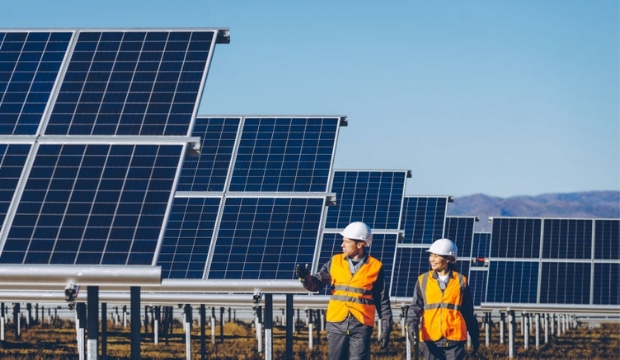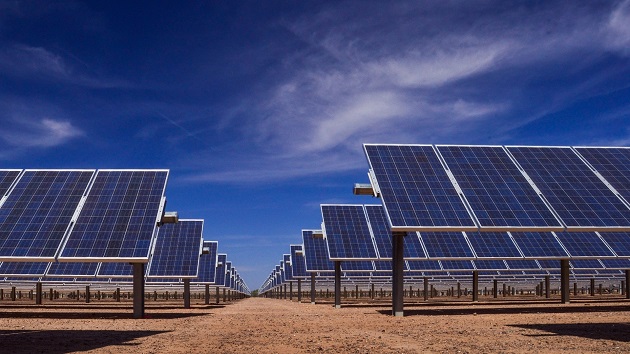The Ultimate Guide To Residential Solar Panels Virginia
The Ultimate Guide To Residential Solar Panels Virginia
Blog Article
Clean Energy Solutions Virginia: Lumina Solar Specializes In Supplying Advanced Photovoltaic Solutions For Residences And Organizations
History and Founding
Have you ever questioned how a photovoltaic panel company springs from a mere stimulate of motivation into a powerhouse of sustainable energy? It typically starts with a vision-- one fueled by a mix of innovation, decision, and a pinch of serendipity. The journey of numerous solar companies mirrors the development of the technology itself: from bulky, ineffective panels to sleek, high-efficiency marvels harnessing the sun's bounty.
The Early Days
In the late 20th century, when solar power was still a niche principle, leaders planted seeds for what would end up being a worldwide movement. Think of a small workshop filled with curious engineers, relentlessly experimenting with photovoltaic cells. Their passion was palpable, typically driven by a desire to fight environment modification and decrease dependence on fossil fuels.
One such anecdote is about a creator who, influenced by an outdoor camping journey, recognized that even in remote locations, the sun might power essential gadgets. This basic observation triggered a company's objective to democratize access to tidy energy.
Founding Concepts

- Development: Constantly pushing the boundaries of solar technology to enhance effectiveness and sturdiness.
- Sustainability: Committing to environmentally friendly manufacturing and lowering carbon footprints.
- Accessibility: Making renewable resource options affordable and useful for daily users.
Turning points in Development
| Year | Secret Occasion |
|---|---|
| 1985 | Business established in a little garage, focusing on research study and development. |
| 1995 | Commercial solar panel item launched, acquiring regional attention. |
| 2005 | Broadened to global markets, accepting international renewable resource objectives. |
| 2015 | Introduced advanced photovoltaic panel technology with improved energy conversion. |
Isn't it fascinating how these incremental actions, typically ignored, form the energy landscape today? The solar panel company story is not practically innovation; it has to do with a relentless mission for a brighter, cleaner future.

Innovations in Photovoltaic Panel Technologies
Ever noticed how some solar panels gleam brighter and last longer? It's not magic; it's the science of photovoltaic effectiveness. Modern photovoltaic panel business invest heavily in technologies like bifacial cells, which catch sunshine from both sides, enhancing energy harvest without broadening roof space. Have you ever questioned why some panels perform better on cloudy days? That is because of advances in thin-film solar technology, which grows under diffused light conditions.
Product Variations Customized to Special Requirements
One size never ever fits all. Photovoltaic panel suppliers now use:
- Monocrystalline panels for maximum efficiency and smooth looks, suitable for space-constrained rooftops.
- Polycrystalline panels, which offer an economical alternative without compromising excessive output.
- Building-integrated photovoltaics (BIPV), merging solar tech seamlessly into architectural aspects like windows and facades.
Picking the ideal product isn't practically in advance cost; it has to do with matching your environment, energy objectives, and long-lasting savings. For instance, homes shaded by trees require panels that master low-light circumstances, something numerous ignore until energy costs climb unexpectedly.
Technical Tips for Ideal Choice
- Assess the temperature level coefficient-- lower values indicate panels lose less performance on hot days.
- Look for panels with enhanced anti-reflective finishes to take full advantage of light absorption.
- Consider the panel's service warranty not simply for flaws, but for ensured power output over decades.
- Do not ignore the importance of the inverter innovation coupled with the panels; it can make or break your system's efficiency.
Beyond Panels: Emerging Patterns
Envision solar panels that adjust their angle instantly to chase after the sun-- tracking systems are ending up being more accessible, increasing yield significantly. Or solar tiles that blend invisibly into your roofline, changing your home into a silent, self-dependent power generator. These developments are improving what a solar panel business offers-- not simply products, but integrated energy services.
Market Presence and Global Operations
Ever wonder why some photovoltaic panel business seem to grow up in every corner of the world while others hardly make a ripple? The distinction lies not simply in innovation but in mastering the art of navigating varied markets. Broadening worldwide resembles planting seeds in various environments-- you should comprehend each environment's unique conditions to flourish.
Take, for instance, the detailed dance of logistics and supply chain management. Shipping panels midway across the world isn't almost range; it has to do with timing, customs, tariffs, here and adjusting to regional need changes. A company with robust global operations expects these variables, making sure panels get here on schedule without pumping up costs. This foresight is no small feat and often separates market leaders from followers.
Key Strategies for Expanding Market Presence
- Localized production: Establishing production hubs near target audience lowers shipping delays and import complexities.
- Strategic collaborations: Collaborating with regional firms accelerates market penetration and builds trust.
- Adaptive product design: Tailoring solar panel tech to weather, sun strength, and infrastructure nuances improves performance and approval.
What about the human factor? Photovoltaic panel business operating worldwide must reconcile cultural differences and regulatory subtleties without losing sight of their core mission. For instance, what works in a sun-drenched desert might fail in a damp seaside region. Often, the most ingenious option is just listening-- soaking up regional insights to fine-tune innovation and technique.
Professionals often recommend a phased rollout instead of a shotgun expansion. Why run the risk of overextension when determined development develops sustainable momentum? Scaling wisely means balancing ambition with functional strength - Solar Companies in Virginia. After all, in the race for sustainable energy dominance, perseverance can be as important as speed
Environmental Impact and Sustainability Practices
When photovoltaic panels initially emerged, many presumed they brought zero ecological luggage. Nevertheless, the reality is more nuanced. The production of photovoltaic cells involves unusual earth metals and energy-intensive processes, which can leave a large carbon footprint before the panels even reach rooftops. The real environmental expense depends heavily on the sustainability practices used by the photovoltaic panel business throughout the lifecycle of their items.
How frequently do we stop briefly to consider what occurs to solar panels at the end of their beneficial life? Unlike batteries or electronic devices, solar panels can last 25-30 years, however disposal and recycling paths remain underdeveloped in lots of areas. A company devoted to reducing environmental damage will have a robust strategy for recycling photovoltaic products, salvaging valuable silicon, glass, and metals to avoid landfill accumulation.
Secret Sustainability Techniques
- Utilizing low-impact production strategies that lessen water and energy usage.
- Implementing closed-loop systems to recycle production waste back into brand-new panels.
- Participating in transparent supply chain audits to guarantee ethical sourcing of basic materials.
- Creating panels for easier disassembly to aid future recycling efforts.
It's worth keeping in mind that some solar companies have actually originated innovative methods, such as incorporating naturally degradable components or utilizing less poisonous chemicals during fabrication. This not just lowers ecological strain however likewise sets a precedent for the industry. The concern remains: can the solar industry truly pivot towards a circular economy model without compromising performance or price?
Professional Tips for Assessing Sustainability
- Inquire about the business's commitment to carbon-neutral manufacturing and whether they balance out emissions.
- Examine if they partner with certified recycling facilities committed to solar panel waste.
- Try to find transparency reports detailing ecological impacts and sustainability objectives.
- Consider the longevity and service warranty of panels as an indirect procedure of resource efficiency.
In the end, selecting solar energy should mean more than just slashing electrical power bills; it's about supporting a future where energy is collected properly and waste is attentively managed. Solar panel companies that embrace this approach not only light up homes however also cast a brighter light on sustainable development.
Report this page